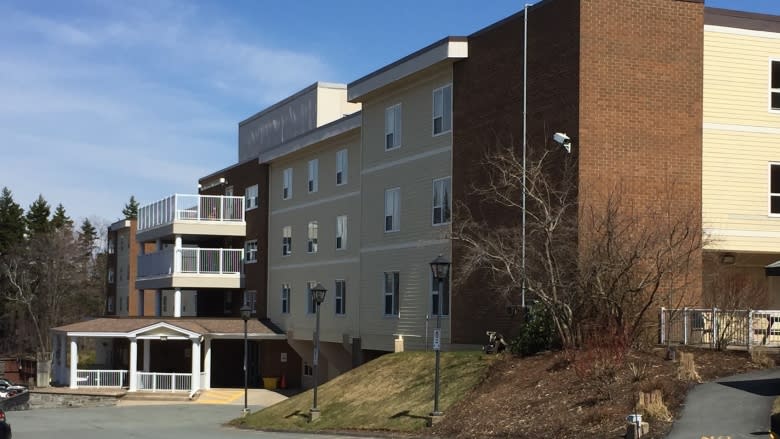Six deaths at Halifax nursing home linked to respiratory illness outbreak
The week before Gordon Taylor died, he was just as active as ever.
The 98-year-old participated in all the activities organized by the Halifax nursing home where he lived. He had just completed a jigsaw puzzle with his wife, Sharon, and she had just taught him how to play Jenga.
"He was an engineer, so he was very interested in that," says Sharon.
But one afternoon earlier this month, Sharon went to Arborstone Enhanced Care on Purcells Cove Road to visit him and noticed something that made her worry.
"I heard him cough, twice, and I knew we were in trouble."
Just a couple of days later, Gordon died.
Virus can be fatal
He is one of six Arborstone residents who died in the past two weeks after contracting a common respiratory infection. All six residents lived on the same floor.
For most people, respiratory syncytial virus is a mild virus that simply causes cold-like symptoms. But for the elderly, it can be fatal.
"No one said the words RSV," says Sharon. "There wasn't any talk about there being anything going on until Gordon was very ill."
It was only when Sharon starting speaking with the nursing staff at Arborstone that she realized the problem was more widespread.
"They said there were around 30 people that were sick and quite a few people had died and things were difficult."
Health authority notified
Staff at Arborstone notified the health authority on April 4 that RSV was circulating on one of the floors. More cases were reported on a second floor less than a week later, a spokesperson for the Nova Scotia Health Authority said in an email to CBC News.
The health authority said Arborstone has reported that it has measures in place to prevent the further spread of the illness and to protect other residents, staff and visitors during the outbreak.
The facility is currently closed to new admissions. Tests are underway to determine whether there are other respiratory illnesses spreading in the nursing home that may have contributed to the deaths.
Arborstone spokesperson Katherine VanBuskirk told CBC News in an emailed statement that Arborstone is re-evaluating the outbreak status each day.
"In addition, our practice is to make clients and family aware by communicating with signage throughout the building. We do not restrict access to the building, but encourage family members to limit their visits to their loved ones' rooms and encourage staff to stay on the floor where they are working."
Informing the public
Sharon says she does remember seeing a sign near the nursing home's elevator mentioning RSV, but it would have been easy for a casual visitor to miss it. A more prominent way of informing visitors of outbreaks might help contain their spread, she said.
While long-term care facilities must report outbreaks to the Nova Scotia Health Authority, those outbreaks aren't always reported to the general public, says Dr. Trevor Arnason, the medical officer of health for the Halifax, West Hants and Eastern Shore areas.
"We get dozens of outbreaks reported each year from long-term care facilities — mostly respiratory outbreaks and enteric or gastrointestinal outbreaks," Arnason said. "Notifying the general public is done based on the need."
Arnason said it's difficult to say for sure how many of the deaths were caused by RSV, since residents at long-term care facilities are being treated for multiple illnesses and are at the end stages of their lives. But he confirmed that the six residents did have RSV.
Twenty-nine residents were affected by the outbreak, and although there has been a decrease in the number of new cases reported to the health authority, it isn't over yet, Arnason said.
Staff shortages
Sharon says the death of the six residents is "certainly very tragic."
"It bears looking at to see if there was any way that we might prevent that type of thing from happening."
While Sharon says staff at the nursing home are excellent, she feels there are simply not enough of them.
"I think there's always a resource issue at Arborstone, as there probably is at most nursing homes and a lot of the assisted-care homes, too. They don't have enough nurses. There's no question," says Sharon, a former professor of nursing herself.
She wonders if there had been more staff, her husband's illness could have been caught earlier.
"Who's to say it would have made any difference?"
But Gordon lived a very full life, Sharon says.
"He really, really wanted to make it to 100. We were thinking he was going to get there."



